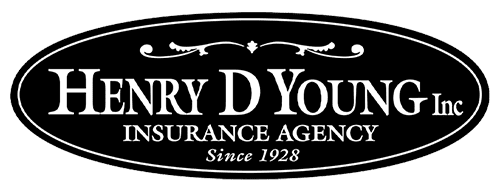March 12-16th is Flood Safety Awareness Week.
Unfortunately, many people may not be aware that flood damage is not covered by homeowners insurance.
Many consumers are unaware that, even if their homes are ruined by a hurricane, they are not insured due to a lack of flood insurance. Insurance against flooding (rising water) is different from insurance against driven rain or leakage, which often are covered.
Three perils—fire, lightning and windstorm—are traditionally covered by homeowners property insurance. Flooding is excluded from homeowners coverage, as floods tend to be catastrophic in nature causing widespread damage in a geographic area. Private insurers are not able to absorb all that risk.
Hurricanes get a lot of attention, but big storms are not the only cause of floods, nor are floods limited to coastlines. In fact, flooding is the nation’s most common and frequent natural disaster, according to federal officials.
Flood insurance first came about after the federal government was called upon to bail out communities. As the nation grew after World War II, flood-damaged communities turned to the federal government for disaster relief and rebuilding assistance. In the 1960s, Congress sought a more proactive system, and in 1968 created the National Flood Insurance Program (NFIP).
This community-based insurance mechanism requires municipalities to adopt and enforce flood-abatement measures. In order to join the NFIP, it must adopt a program of corrective and preventive measures for reducing future flood damage (including zoning and building requirements). Flood insurance is available only to consumers in communities that have joined the NFIP.
The National Flood Insurance Program (NFIP) is part of the Federal Emergency Management Agency (FEMA). It provides flood coverage to homeowners and renters as well as commercial building owners. Coverage is provided through Trusted Choice® insurance professionals, as well as through other insurance agents.
Flood insurance may not just be desirable for homeowners, it may be required. For example, mortgage lenders are legally bound to require consumers buying a house in a high-risk flood zone to have flood insurance.
Consumers who own or rent property in low- or moderate-risk flood areas can buy flood insurance, and may be eligible for a lower-cost preferred risk flood policy.
Flood insurance protects against losses to buildings and contents (not the property on which they sit). Coverage is in effect whether flooding results from heavy rains, storm surge on the coast, melting of snow, blocked storm drainage systems, levee or dam failure, or other causes. Waters must cover at least two acres or affect at least two properties to be considered a flood for insurance purposes.
Residential flood insurance provides as much as $250,000 of coverage for dwellings for one to four families, and as much as $100,000 for contents. Commercial property owners can get up to $500,000 of insurance for the building and the same amount for contents. Condominiums also can be insured.
Unlike homeowners insurance, flood insurance has a waiting period. The NFIP sets a standard 30-day waiting period before flood coverage goes into effect (except for lender-required flood insurance, if more insurance is required because of a flood map revision, or if existing coverage is being increased upon renewal).
Henry D Young Inc Insurance Agency is a Trusted Choice® insurance professional and can help you sort out whether you need coverage, what type to apply for, and what to get.
Click here to obtain information about your flood risk and steps you can take to lessen the impact of flooding.
The information in this article is meant as a guideline only. There is nothing in this article that alters the coverage or interpretation of any specific policy. Because some statements are generalizations, and because different companies’ policies contain slight differences, please refer to your specific policy. Call our office before making any judgements or decisions concerning your particular situation and coverage that may, or may not, apply.
Topics: Independent insurance agency, Trusted choice insurance agent, Flood insurance, Homeowners insurance


